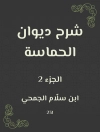Rudyard Kipling’s ‘Verses 1889-1896’ is a compelling anthology that captures the essence of the poet’s early career, marked by vivid imagery and rhythmic linguistic dexterity. The collection reflects the socio-political landscape of the British Empire during the late 19th century, blending personal sentiment with broad cultural themes. Kipling’s verses are characterized by a masterful employment of meter and rhyme, encapsulating both the grandeur and the gritty realities of empire, encapsulated in a style that is both accessible and profound. Themes of colonialism, identity, and the human experience resonate throughout, making this work not only a reflection of the author’s personal beliefs but also a mirror to the historical context of the era. Rudyard Kipling, a product of colonial India, was deeply influenced by his surroundings and the complexities of empire. His upbringing, marked by a blend of British and Indian cultures, imbued him with a rich understanding of the nuances of colonial life. This background informed much of his writing, as he grappled with questions of loyalty, belonging, and the moral implications of imperialism, leading to a nuanced portrayal of both the British and the colonized. ‘Verses 1889-1896’ is a must-read for anyone interested in understanding the intricate interplay between literature and history. Kipling’s powerful voice and evocative style not only illuminate the period but also invite readers to reflect on contemporary issues of identity and belonging. This collection is essential for both literary scholars and general readers alike, ensuring Kipling’s role as a significant figure in the canon of Victorian poetry.
Circa l’autore
Rudyard Kipling, born on December 30, 1865, in Bombay, India, is held in high regard as a storyteller and poet, notable for his contributions to English literature during the late 19th and early 20th centuries. He is perhaps best known for his works that revel in the complexity and vibrancy of the British Empire, such as his collection of short stories and poems, ‘Verses 1889-1896’. Educated in England but later returning to India, his unique cross-cultural perspective enriched his literary voice, allowing him to infuse his work with acute observations of the imperial experience, seen vividly in pieces such as the ‘Barrack-Room Ballads’. Kipling’s narratives are marked by a distinctive rhythm and use of dialect, which helped to convey the attitudes and language of soldiers and colonial administrators. His work is at once celebrated for its imaginative richness in books like ‘The Jungle Book’ and ‘Just So Stories’ and scrutinized for its imperialist overtones. In 1907, Kipling became the first English-language writer and the youngest-ever recipient of the Nobel Prize in Literature, honored for his influence on the literary world. He continued to write until his death on January 18, 1936, leaving a legacy that is as complex as it is enduring, with ‘Verses 1889-1896’ serving as a testament to his early command of verse and narrative, contributing to his storied position in the annals of English literature.












